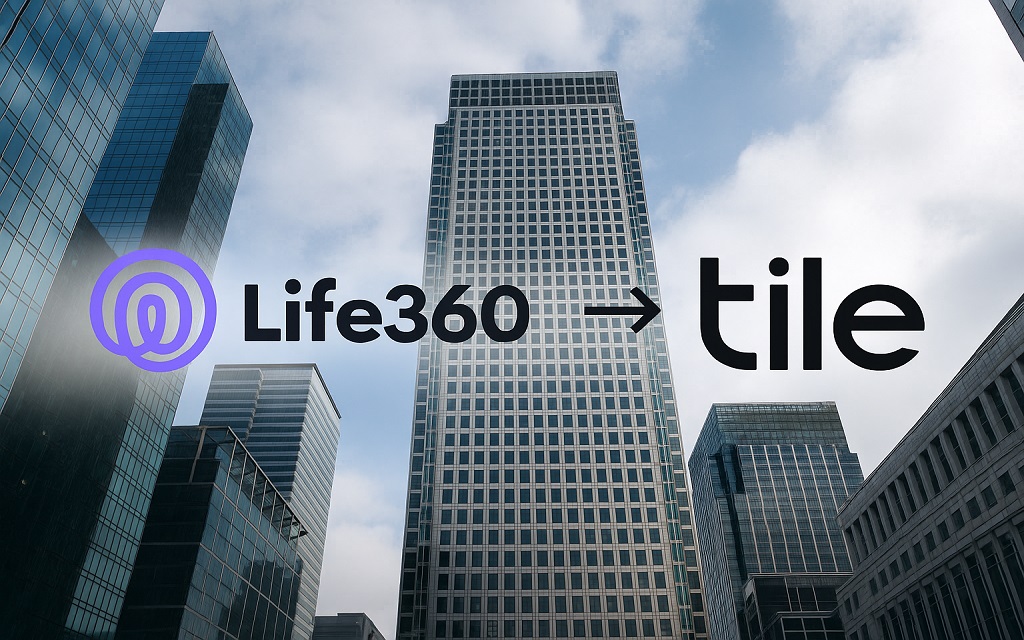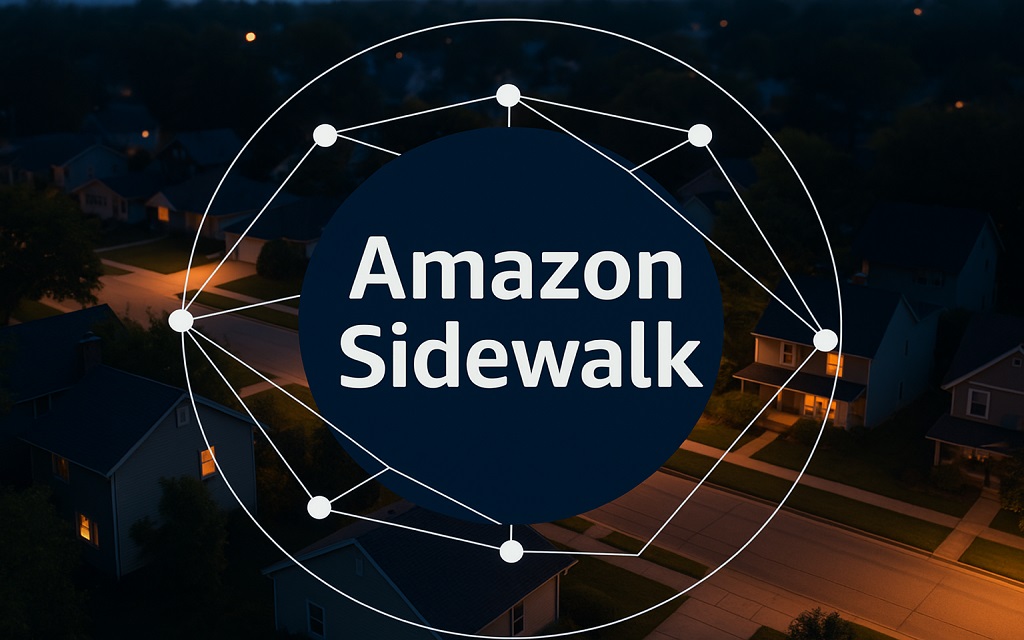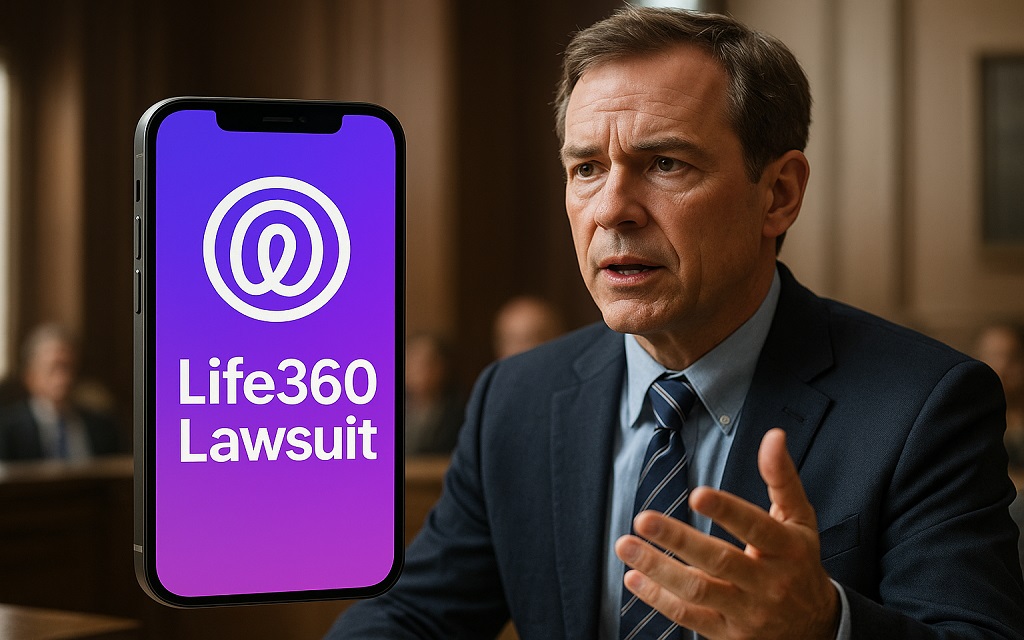You are here for clear facts on the Life360 lawsuit, and this guide delivers them in simple, direct language. The Life360 lawsuit involves claims that Tile tracking devices, owned by Life360, allowed non-consensual location monitoring. The plaintiffs contend that stalking was made possible by the product’s design, which broke privacy laws. Ireland-Gordy et al. v. Tile, Inc. and Life360, Inc. was filed in the U.S. District Court’s Northern District of California in August 2023.
Life360 purchased Tile in 2021 to expand its family safety program network. According to the lawsuit, criminals were able to monitor people using the same technologies designed to locate wallets or keys. It points to poor safety alerts, vague data disclosures, and the integration of Amazon Sidewalk, which allegedly widened tracking coverage.
The main legal reasons mentioned in the complaint are intrusion upon seclusion, UCL, and CIPA. Users from 35 states may be included in the proposed class, and damages might amount to $5,000 per infraction. The Life360 lawsuit now stands as a significant test of user consent, digital safety, and corporate accountability in modern tracking technology.
What Is the Life360 Lawsuit About?
The Life360 lawsuit centers on product safety, consent, and privacy. It claims Tile tracking devices allowed secret monitoring without user approval. Ireland-Gordy et al. v. Tile Inc. and Life360 Inc. was filed in the U.S. District Court’s Northern District of California in August 2023.
According to the plaintiffs, Life360 sold a faulty device without any safety warnings, consent restrictions, or alarms. They argue the company knew about stalking risks but ignored them. The claim also says Life360 collected and shared user location data for profit, violating CIPA, UCL, and California’s constitutional right to privacy.
Amazon’s Sidewalk network is a significant problem because it supposedly increased Tile’s tracking range and made detection more difficult. Clearer privacy disclosures, product redesign, and damages are what the plaintiffs are requesting.
The case goes beyond one product. It challenges how far companies can go in tracking and data collection before crossing into privacy violations. The court’s ruling will shape future standards for connected device safety.
Background of Life360 and Tile Acquisition

The Life360 lawsuit traces back to how the company expanded its tracking network. When Life360 was first released in 2008, it was a family safety program that allowed for emergency coordination, crash notifications, and real-time location sharing. Its goal was to make families safer and more trustworthy.
In 2021, Life360 acquired Tile, a well-known producer of Bluetooth trackers for locating keys, wallets, and other items. Each Tile device is linked to neighboring smartphones to create a massive location network. One of the most critical location ecosystems in the world was created by the convergence of family monitoring and personal tracking.
Privacy experts quickly raised concerns. They said the integration expanded data collection and blurred the line between safety and surveillance. The lawsuit claims Life360 ignored privacy complaints and failed to improve Tile’s security features. It also accuses the company of deepening risks by linking Tile to Amazon Sidewalk, which allows tracking across neighborhoods through connected smart devices.
The case now questions whether Life360’s growth strategy prioritized connectivity over privacy protection.
The Privacy Allegations Explained
The main allegations in the Life360 case are that Tile tracking devices allowed for covert monitoring without permission. According to the plaintiffs, Life360 did not stop predictable abuse, enabling criminals to follow victims by concealing trackers in vehicles, purses, or clothing.
According to the complaint, Life360 disregarded public alerts on stalking connected to Bluetooth trackers. It says the company continued selling Tile devices without adding alerts or safety updates, even though it could do so.
Key allegations include:
- Bad Design: Tile lacks anti-stalking alarms, in contrast to Apple AirTag.
- Invasion of Privacy: Life360 collected and shared precise location data without consent.
- Ignorance and Negligence: The company ignored complaints and failed to issue the proper warnings.
- Data Monetization: Life360 allegedly profited from selling or sharing user data through its expanded network.
The lawsuit also highlights Amazon Sidewalk, which extends Tile’s range through Echo and Ring devices, increasing tracking risks.
The court will decide if Life360’s design and data practices violated California privacy laws and user rights.
Legal Basis of the Complaint

You should know the Life360 lawsuit depends on several key laws. Each one supports the claim that the company violated privacy and consumer rights. The plaintiffs use both statutory and common law theories. The case joins modern digital privacy rules with traditional negligence principles.
It is essential to understand that there are five main legal allegations in the complaint.
1. The California Privacy Invasion Act (CIPA)
According to the plaintiffs, Life360 violated Penal Code §630, the California Invasion of Privacy Act. CIPA forbids the recording or transmission of personal data without consent. The complaint argues that every signal from a Tile tracking device counts as an unauthorized data transmission. According to the plaintiffs, Life360 used third-party networks, such as Amazon Sidewalk, to intercept and exchange user location data. Up to $5,000 in damages might be awarded for each incident as a separate offense.
2. Intrusion Upon Seclusion
You should understand that this claim refers to emotional harm. Intrusion upon solitude is a tort that shields people from prying eyes. The plaintiffs argue that Life360’s defective design lets strangers track others. They assert that the intrusion took place within private areas like houses and cars.
3. The Unfair Competition Law (UCL)
The UCL prohibits illegal or dishonest business practices. The complaint says Life360 misled consumers by promoting safety while selling products that created danger. It also claims the company gained unfair profit through false advertising.
4. Carelessness and Ignorance
Life360 is accused of negligence by the plaintiffs. They say the company ignored reports showing its products could aid stalking. According to the complaint, the company’s duty of care was violated by its failure to warn users.
5. Unfair Enrichment
The final claim focuses on profit. The plaintiffs contend that Life360 profited monetarily from unreported data sales and dangerous design. To recoup profits from invasions of privacy, they seek restitution.
Every theory strengthens the grievance. Collectively, they demonstrate how the Life360 case combines accountability, ethics, and privacy in contemporary product design.
Who Filed the Case and Where
The U.S. District Court for the Northern District of California, which hears significant privacy and technology matters, received a complaint on August 14, 2023, marking the start of the Life360 lawsuit. The legal and tech circles took notice of the file right away. It was formally named Ireland-Gordy et al. v. Tile, Inc. and Life360, Inc. (Case No. 23-cv-4119).
What makes this case stand out is its reach. Both Life360 and Tile are based in California, a state known for some of the nation’s strongest privacy laws under CIPA, UCL, and the state constitution. This makes California not only the logical but also the strategic choice for such a lawsuit.
At its core, the lawsuit accuses Life360 and Tile of tracking and monitoring users without their consent. The plaintiffs urge the court to require stronger privacy protections, improved data-handling practices, and compensation for affected users.
The case is still in its early phases. Class certification is still pending, and research is still ongoing. But if the court goes ahead, the ruling might change how internet firms manage user data and establish a strong precedent for digital privacy regulations across the country.
The Plaintiffs’ Position
The plaintiffs in the Life360 lawsuit say the company violated privacy rights and consumer trust through unsafe product design. They claim Tile trackers exposed thousands to stalking, emotional distress, and fear.
However, they argue that Life360 knew about the risks but ignored public warnings and user complaints. They say the company should have predicted that the devices could enable non-consensual tracking.
The plaintiffs ask the court to:
- Approve a class action representing users across multiple states
- Order Life360 to redesign Tile devices with stronger privacy alerts
- Award damages for emotional distress and legal costs
- Ban sales of products that lack anti-stalking features
They describe their injury as the loss of safety and peace of mind. Many say they replaced devices or sought legal protection. The plaintiffs believe their case will set a national example that privacy protection must come before profit.
The Defendants’ Response
Life360 and Tile refute all of the allegations in the Life360 complaint. They claim that the gadgets don’t facilitate stalking and have valid uses, like finding misplaced objects. They contend that any abuse was the result of criminal activity rather than corporate carelessness.
The companies claim their privacy policies meet California law. They say users receive clear terms explaining how data is collected and used. Life360 adds that its system includes encryption, limited access, and opt-out options to protect user privacy.
The defense argues that the laws cited — including CIPA and UCL — do not apply. They say those statutes cover communication interception, not location tracking. The companies also insist there is no proof they sold or shared user data unlawfully.
The case remains in progress. The court has not yet decided on discovery requests or motions to dismiss. Judges’ interpretations of corporate responsibility, foreseeability, and user permission in relation to privacy design will ultimately determine the outcome.
Understanding the Class Action Claims
The Life360 lawsuit is a proposed class action. The plaintiffs want to represent all users who suffered privacy harm from Tile tracking devices. The court must approve class certification before the case moves forward.
The plaintiffs say many users faced the same risks — loss of privacy, fear, and emotional distress. They argue that one unified case is more efficient and fair than hundreds of separate lawsuits.
The proposed classes include:
- Tracked Users: People monitored without consent
- Purchasers: Consumers who bought Tile devices under Life360
- Residents of Covered States: Users protected by privacy laws in up to 35 states
- At-Risk Users: People exposed through networks like Amazon Sidewalk
Under Federal Rule of Civil Procedure 23, the plaintiffs must prove the group is significant, shares common issues, and can be represented fairly. Life360 is expected to argue that tracking incidents vary too much for one class.
If accepted, the lawsuit might affect thousands of users and establish a significant precedent for product liability and digital privacy legislation.
Role of Amazon Sidewalk in the Case

The Life360 lawsuit links privacy violations to Amazon Sidewalk, a shared wireless network. According to the plaintiffs, Sidewalk decreased user control and permitted undesired tracking by expanding the range of Tile trackers.
Amazon Sidewalk uses a mesh network to link gadgets like Echo speakers and Ring cameras. To keep the gadget connected, a tiny amount of internet traffic is used. When a Tile device enters that range, its signal can transmit automatically—even without the owner’s phone nearby.
The plaintiffs argue that Life360 knew this system expanded tracking power but failed to warn users. They claim the integration created hidden surveillance risks. Life360 denies wrongdoing, saying Sidewalk improved performance, and Amazon insists the network uses encryption and anonymity for safety.
The court will decide if the integration created a predictable privacy threat. A ruling for the plaintiffs could set new limits on how companies share user data across connected devices.
Consumer Privacy Laws Involved
You should know the Life360 lawsuit depends on several privacy laws that protect user data in California and other states. Each law defines a duty for companies that collect, share, or sell personal information. The plaintiffs contend that Life360 and Tile violated consumer rights by using these statutes.
It is essential to look at the main statutes that form the foundation of the litigation.
1. The California Privacy Invasion Act (CIPA)
Penal Code §630–638 prohibits recording or intercepting communications without permission under the CIPA law. The plaintiffs say Tile tracking devices transmitted users’ movements through third-party networks like Amazon Sidewalk. They claim each transmission counted as an illegal data interception. Each infraction of this statute carries a $5,000 maximum damage cap, which is equivalent to three times actual losses.
2. The Unfair Competition Law (UCL) in California
The UCL prohibits unfair or dishonest commercial practices under the Commercial and Professions Code §17200. The complaint says Life360 advertised its trackers as safe while ignoring their known misuse for stalking. The plaintiffs say that the practice misled consumers and created unlawful profit.
3. California Constitutional Right to Privacy
The California Constitution lists privacy as a fundamental right. The plaintiffs argue Life360 violated that right by sharing and collecting location data without full consent. The emotional and psychological harm from such exposure forms part of this claim.
4. Common Law Claims
The case also includes negligence, intrusion upon seclusion, and unfair enrichment. The plaintiffs say Life360 failed to act with reasonable care. They also argue that the company gained money from an unsafe design.
You should note that other privacy frameworks like CCPA and CPRA influence the case indirectly. Those laws grant users rights to access, delete, and control their data. The Life360 lawsuit reflects the same principles, even though it cites older statutes. The court’s reading of these laws will shape future compliance standards for all connected device makers.
Who Can Join in the Lawsuit?

As a proposed class action, the Life360 complaint allows users who have experienced comparable privacy loss to join when the court grants certification.
Four major categories are identified in the complaint:
- Tracked Individuals: People secretly followed through Tile devices without consent
- Buyers or Users: Customers who purchased or registered Tile goods following Life360’s takeover in 2021
- Citizens of States Affected: Users from up to 35 states with robust privacy laws, such as California
- In danger Individuals: Those who are subject to tracking via Amazon Sidewalk or other networks
Users will join automatically once the class is certified. They may remain part of it or opt out to file individual claims.
Documentation of illegal tracking, such as screenshots, police reports, device receipts, or app warnings, may be required by participants.
Class members may be entitled to damages, reimbursements, and an order compelling Life360 to modify its products if the case is successful. Additionally, the case might establish new privacy guidelines for future tracking devices.
Possible Causes and Solutions
You should know what the Life360 lawsuit demands in court. In addition to monetary damages, the plaintiffs demand product reform. They want Life360 to answer to the court for alleged privacy infringement. The proposed remedies include both required safety upgrades and monetary damages.
Understanding each of the relief options mentioned in the complaint is crucial.
1. Statutory Damages
The California Invasion of Privacy Act (CIPA) is the legal basis for the plaintiffs’ claims. According to the statute, each infraction may result in damages of up to $5,000, or three times actual losses. Every illegal data transfer via a Tile tracking device may be considered a violation. If the court discovers repeated misuse, the overall award could increase significantly.
2. Disgorgement and Restitution
The plaintiffs want their illegally obtained gains returned. They contend that selling gadgets without sufficient warnings generated revenue for Life360. They also claim the company benefited from user data collected through Amazon Sidewalk and other networks. The court could order Life360 to return any profits linked to privacy harm.
3. Compensatory Damages
You should know that the plaintiffs describe emotional distress as real injury. They say the fear and anxiety caused by unauthorized tracking deserve compensation. The law allows recovery even when physical harm does not occur.
4. Injunctive Relief
The plaintiffs ask for a court order that forces Life360 to fix design flaws. They want alerts for unknown trackers, better privacy disclosures, and precise opt-out controls. They also request reports showing how data is shared with third parties.
5. Attorney Fees and Costs
The lawsuit seeks legal fees for the plaintiffs’ attorneys. That request ensures affected users do not pay for representation directly.
It is essential to understand that the Life360 lawsuit aims for more than money. The plaintiffs want lasting change in how companies design and market tracking devices. A decisive ruling may set industry-wide privacy standards for connected products.
User Rights Under CCPA and CPRA
You should know that the Life360 lawsuit reflects many principles found in California’s modern privacy laws. Users have direct control over their personal information under the California Consumer Privacy Act (CCPA) and the California Privacy Rights Act (CPRA). The plaintiffs say Life360 ignored these same values when handling location data from Tile tracking devices.
It is essential to understand the rights that guide this argument.
1. Right to Know
You have the right to ask a company what personal data it collects about you. That includes information shared with third parties. The plaintiffs say Life360 failed to give clear access to data lists or share details. They claim users never learned how Tile devices linked to broader networks such as Amazon Sidewalk.
2. Right to Delete
You also have the right to request deletion of personal data. The plaintiffs say Life360 made deletion nearly impossible because fragments of location data were stored in connected systems. Even after account closure, data may have remained visible through shared networks.
3. Right to Opt Out of Data Sales
Both CCPA and CPRA let you refuse the sale or transfer of your information. The complaint says Life360 profited from data sharing tied to advertising and analytics. The plaintiffs argue that users never received a real chance to reject that practice.
4. Right to Correct and Limit Use
The CPRA introduced new rights in 2023. You can demand the correction of wrong data and restrict the use of sensitive details such as precise location. The lawsuit says Life360 gave no simple way to submit such requests.
You should know that you can act independently of the lawsuit. You can send a Data Subject Access Request (DSAR) through Life360’s privacy page. Ask to view, delete, or block data collection. The company must answer within 45 days under California law.
The Life360 case demonstrates the current alignment between state law and privacy litigation. Both seek to ensure justice, transparency, and consent in the handling of all personal data.
How to Opt Out or Submit a Claim

You should understand how users may be affected by the Life360 lawsuit. The process depends on the court’s decision about class certification. The court must approve the class before anyone can officially join or exclude themselves.
It is essential to know the main steps in advance.
1. Wait for Class Certification
The court has not yet certified the proposed class. Once approval occurs, public notices will appear online, through email, or by mail. The notice will explain who qualifies, how to join, and what rights each user has.
2. Automatic Inclusion
You will become part of the class automatically if you qualify and take no action. You will not need to hire an attorney or appear in court. The lead plaintiffs and lawyers will represent you. You may receive part of any payment or injunctive relief if the plaintiffs win.
3. Opting Out
You can choose to leave the class. Opting out lets you file your own claim or take no legal step. Some users prefer this if they have experienced unique harm, such as serious stalking or emotional distress. The notice will explain where to send a written opt-out request. Deadlines will appear clearly. Missing the date may automatically include you.
4. Individual Claims
If a settlement or judgment occurs, you may need to submit a short claim form. That form confirms identity, device use, or tracking proof. Purchase receipts or images of odd Tile device activity are two examples. Make copies of every document.
5. Independent Action
You should take privacy steps even before the case ends. You can request data deletion, disable Amazon Sidewalk, and check your app permissions. Those steps protect your information regardless of lawsuit status.
The Life360 lawsuit remains in progress. Court approval of the class will decide how users receive notices and relief. Acting early keeps you informed and preserves your rights.
Broader Impact on Tech and Privacy Laws
You should understand that the Life360 lawsuit affects more than one company. The case could shape how courts and lawmakers define privacy duties for all tracking technology. The decision may guide how developers design devices that collect or transmit location data.
It is essential to see how each outcome may influence future regulation.
1. Setting a Legal Standard for Tracking Devices
If the plaintiffs succeed, the court will link product design directly to privacy liability. That means companies must consider privacy harm during development. The case may establish that poor design can equal unlawful surveillance. Similar devices, such as AirTags, GPS tags, and smart trackers, may face new safety requirements.
2. Extending the Regulations for Consumer Protection
The lawsuit strengthens California’s standing as a pioneer in privacy enforcement. Strong standards are already established by state laws such as CCPA/CPRA, UCL, and CIPA. Other states may adopt similar laws once the court defines how misuse of tracking data fits into consumer protection. Federal regulators such as the FTC could also follow that framework to tighten national privacy oversight.
3. Forcing Transparency in Data Sharing
The case focuses on hidden data movement between devices and third-party systems like Amazon Sidewalk. A ruling for the plaintiffs may require companies to publish clear network maps and data-sharing lists. Privacy policies may need to be written in plain language and include simple opt-out tools.
4. Raising Corporate Accountability
A final ruling could lead to a significant change in the ethics of technology; therefore, you should be aware of it. Cloud providers, app developers, and device manufacturers may work together to create common safety standards. Consent, warning mechanisms, and transparency could all become required.
The business is already under pressure from the Life360 lawsuit to view privacy as a legal obligation rather than a marketing gimmick. For years to come, the decision will affect how connected technology balances innovation and user safety.
Public and Legal Reactions
You should be aware that the Life360 case has generated strong feelings in both the public and legal domains. The matter is now at the center of the technology industry’s privacy discussion. It currently symbolizes a conflict between user safety and innovation.
Examining the reactions of various groups is crucial.
1. Advocates for Privacy
Digital rights organizations support the plaintiffs. The case is a wake-up call, according to organizations like the Electronic Frontier Foundation (EFF) and Privacy Rights Clearinghouse. They claim that businesses need to incorporate safeguards against stalking into consumer electronics. Advocates see the case as a watershed in the enforcement of privacy laws. They contend that user consent shouldn’t be buried in technical jargon but should be clear and optional.
2. Legal Professionals and Business Analysts
Technology law specialists view the case as a test of corporate accountability. They research the potential for courts to apply conventional negligence standards to digital technology. Analysts predict that a ruling against Life360 could lead to stronger internal audits and design reviews across the tech sector. The case may also inspire new federal privacy proposals modeled after California’s laws.
3. Public Reaction
You should know that users remain divided. Because Life360 offers safety features like crash alarms and real-time location updates, many families rely on it. They fear losing those benefits if stricter limits apply. Others share stories online about hidden trackers and safety fears. They support stricter oversight and clear consent rules.
4. Media Coverage
National media highlight the case as part of a broader discussion about surveillance culture. Reports compare Tile devices with Apple AirTags, noting similar lawsuits about stalking. Journalists question how much data convenience is worth when privacy risks grow each year.
The Life360 lawsuit continues to attract public scrutiny. The result will have an impact on consumer and tech brand trust that goes well beyond this particular argument.
How Users Can Prevent Themselves
While the Life360 case is ongoing, you should take proactive measures to safeguard your privacy. The case highlights gaps in user awareness and consent. Simple actions can help reduce risk and limit unauthorized tracking.
It is crucial to apply practical measures today.
1. Check for Unknown Trackers
Your phone can be used to locate concealed Bluetooth devices.
- Open the Find My app on your iPhone and search for unknown accessories.
- Install the Tracker Detect app on your Android device to look for questionable gadgets.
- If you locate an unknown Tile device, move to a public area and contact local police. Do not attempt to confront anyone directly.
2. Review App Permissions
You should inspect location settings inside the Life360 and Tile apps.
- Disable background location access when not needed.
- Remove unused family or shared accounts.
- Revoke access for old devices no longer in use.
Reducing unnecessary connections limits how much data companies collect.
3. Disable Amazon Sidewalk
You can turn off Amazon Sidewalk if you use Alexa or Ring devices.
- Open the Alexa app.
- Select Settings → Account Settings → Amazon Sidewalk.
- Switch the setting to Off.
This prevents Tile trackers from extending their signal through nearby networks.
4. Submit a Privacy Request
You may file a Data Subject Access Request (DSAR) under California privacy law. Ask Life360 to show, delete, or restrict data about you. The company must respond within 45 days.
5. Stay Updated
You should monitor class action websites and news updates about the Life360 lawsuit. New deadlines and potential settlements will be explained in court filings and privacy alerts.
Your position will be strengthened later if you protect yourself today. The law can take years, but privacy control starts immediately with small and informed steps.
Comparison With Other Tracking Device Cases
You should understand that the Life360 lawsuit is part of a broader legal trend. Courts now face similar claims involving Bluetooth and GPS trackers. Each case examines how product design can enable stalking or unauthorized surveillance. The outcomes together define privacy duties for all technology companies.
It is essential to look at other examples that shape this discussion.
1. The Apple AirTag Lawsuit
In 2022, Apple was the target of a class action lawsuit about its AirTag devices. Plaintiffs claimed that stalkers may easily follow victims thanks to AirTags. The case claimed Apple ignored early warnings from security experts. After public criticism, Apple added safety updates. Users now receive alerts when an unknown AirTag moves nearby. This change did not end litigation, but it reduced future risk. The AirTag lawsuit set the model for cases like Life360 by linking design failure to privacy harm.
2. Tile’s Prior Warnings
Before the acquisition, Tile already faced criticism. Security researchers reported that its trackers lacked alerts used by competitors. The plaintiffs in the current case argue that Life360 knew about those flaws yet did not fix them. They say this shows disregard for safety after public warnings. Courts may see that pattern as negligence.
3. Broader Privacy Litigation
You should know that other companies, such as Ring, Meta, and Google, have faced privacy suits. Those cases focused on hidden data collection and surveillance. Several ended in multimillion-dollar settlements. They show that privacy injury can justify compensation even without financial loss.
4. Lessons for Technology Firms
Every case teaches three rules.
- Product design equals legal responsibility.
- Privacy policies must be clear and direct.
- Swift action reduces legal exposure.
The Life360 lawsuit follows this same path. A ruling against the company could set another milestone in digital privacy law. It would confirm that user protection must come before convenience or profit.
FAQs
Why did Life360 get sued?
Because users alleged its Tile trackers enabled stalking and violated privacy laws through unsafe design and data practices.
Can I still join the class action lawsuit?
Not yet — the class hasn’t been certified, so no one can officially join or file claims right now.
What happened with Life360?
A judge dismissed some claims as time-barred and paused the rest pending arbitration and appeal in 2025.
How to get money back from Life360?
You can’t yet — no settlement or payout has been approved while the case remains stayed.
Conclusion
The Life360 lawsuit highlights how privacy and product design now intersect in law. The plaintiffs say Life360 ignored known risks in Tile tracking devices and network links like Amazon Sidewalk. They claim the company valued expansion over safety.
You should know the case aims to secure damages, redesign the product, and strengthen privacy safeguards. It also signals to other technology firms that user protection must stand above profit.
The lawsuit remains active in the U.S. District Court for the Northern District of California. Its outcome could redefine privacy duties for all device makers and confirm that user consent is a legal right, not an option.
Disclaimer: This article provides a general overview of the Life360 lawsuit, based on publicly available information, and is intended for informational purposes only. It is not legal advice.




